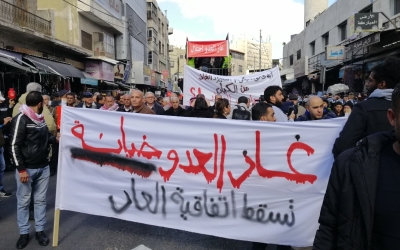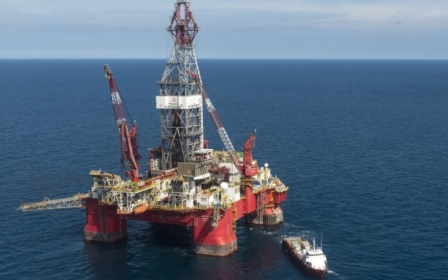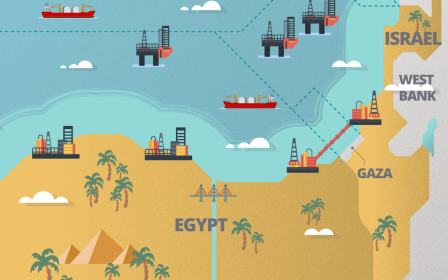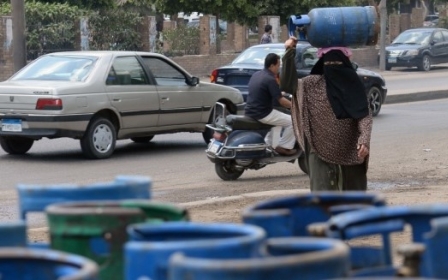'A holiday for the state of Israel': Israeli gas begins pumping to Egypt
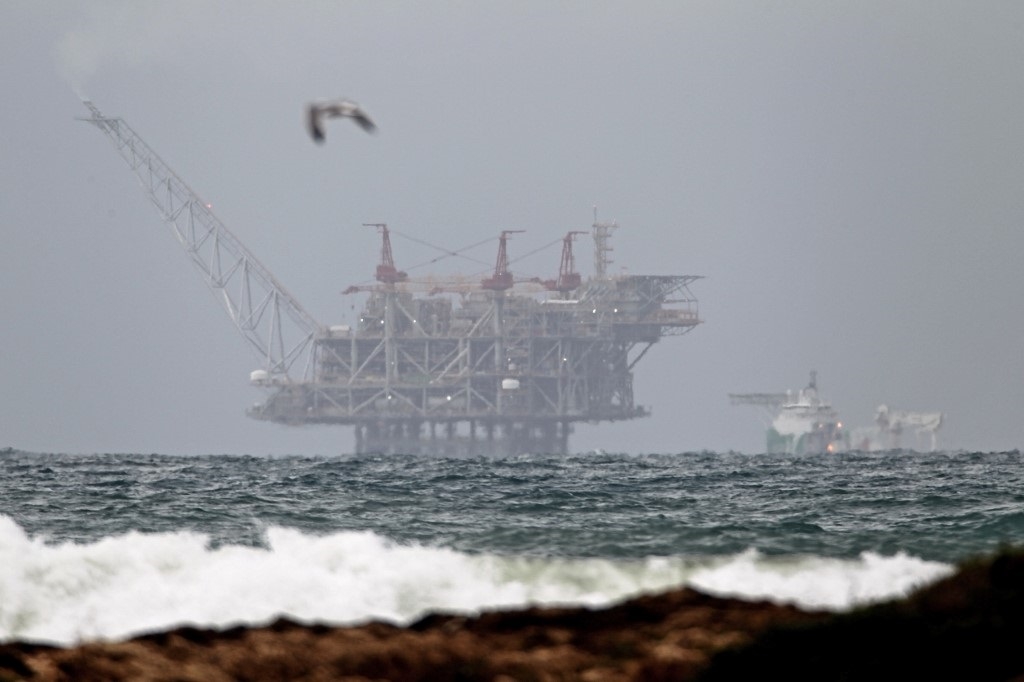
Israel began exporting natural gas to Egypt on Wednesday, fulfilling a deal expected to be worth $19.5bn, years in the making.
The controversial agreement is a major boon for Israel's coffers, as well as the partners in its largest offshore gas field, whose production had been stalled for years.
The deal between US-based Noble Energy and Israel's Delek Drilling and Dolphinus Holdings, a private Egyptian company majority-owned by the Egyptian General Intelligence Service, is also a victory for the Egyptian government, which aims to build a regional energy hub.
Millions of dollars that Cairo owed in legal settlements over an earlier deal mired in corruption have been forgiven as a result of the deal, which marks the latest chapter in a saga that has seen Israeli and Egyptian gas fortunes rise and fall - and at times left Israelis and Egyptians in the dark and fuelled protests.
"This is a holiday for the state of Israel," Israeli Energy Minister Yuval Steinitz told reporters on Wednesday.
New MEE newsletter: Jerusalem Dispatch
Sign up to get the latest insights and analysis on Israel-Palestine, alongside Turkey Unpacked and other MEE newsletters
"Cooperation between Israel and Egypt in the field of energy and gas to the tune of tens of billions of dollars is the first of its kind since the signing of the peace treaty between the two countries 40 years ago.”
A joint statement from Steinitz and Egyptian Energy Minister Tareq el-Molla said the arrival of the gas is "an important development that will serve the economic interests of both sides".
Exports to Europe
Israel will initially export 200 million cubic feet of gas per day to Egypt, two Egyptian industry sources told Reuters. Gas from Leviathan will be supplied to Dolphinus at a rate of 2.1 billion cubic metres (bcm) per year, rising to 4.7 bcm per year by the second half of 2022, according to Delek.
The gas is being supplied by a subsea pipeline which connects Israel and Egypt's Sinai peninsula, and once brought Egyptian gas to Israel that was sold far below market rate.
Its direction, however, has been reversed after the Leviathan partners bought a stake in the firm controlling it in 2018.
Some of the gas exports are expected to be shipped to Europe from liquefied natural gas plants in Egypt.
Molla told Egypt's El-Watan newspaper that the county was only able to start exporting gas to Europe a year and a half ago when it became gas self-sufficient.
Currently, he said, the country exports one billion cubic feet of gas to Europe each month in 10 shipments, but plans to double that number once operations at the LNG plant at Damietta, which stopped several years ago as a result of a dispute, restart.
Molla also said Egypt was planning a bidding round for oil drilling in the western Mediterranean Sea and was in talks with Chevron, Exxon Mobile and Total.
Ongoing protests
The deal is also a lifeline for Israel's gas industry, which has had trouble securing foreign investment for the aptly-named Leviathan since its discovery in 2010.
Before the Egypt deal was sealed, Leviathan's only customer was Jordan and, as the years had ticked by, the list of nearby customers to whom it made sense to sell gas slowly dwindled, largely because many had either discovered or believed they would find their own gas.
Companies typically require agreements to be made in advance of producing gas from fields because they are so expensive to develop, so the Egyptian agreement will have made further deals on the field more likely.
But the completion of the deals hasn't quelled public protest. Over the past few weeks, ongoing protests have been held in multiple cities in Jordan after gas from Leviathan started flowing to the kingdom as part of it's own $10bn deal.
Demonstrators say the deal to buy Israeli gas was completed in secrecy by the government and say they reject using energy "stolen from occupied Palestine".
Israeli activists, including those who live ashore from Leviathan's production platform, which sits 10km off the coast, have also protested over environmental concerns and tried unsuccessfully to block operations in Israel's Supreme Court.
Middle East Eye delivers independent and unrivalled coverage and analysis of the Middle East, North Africa and beyond. To learn more about republishing this content and the associated fees, please fill out this form. More about MEE can be found here.


